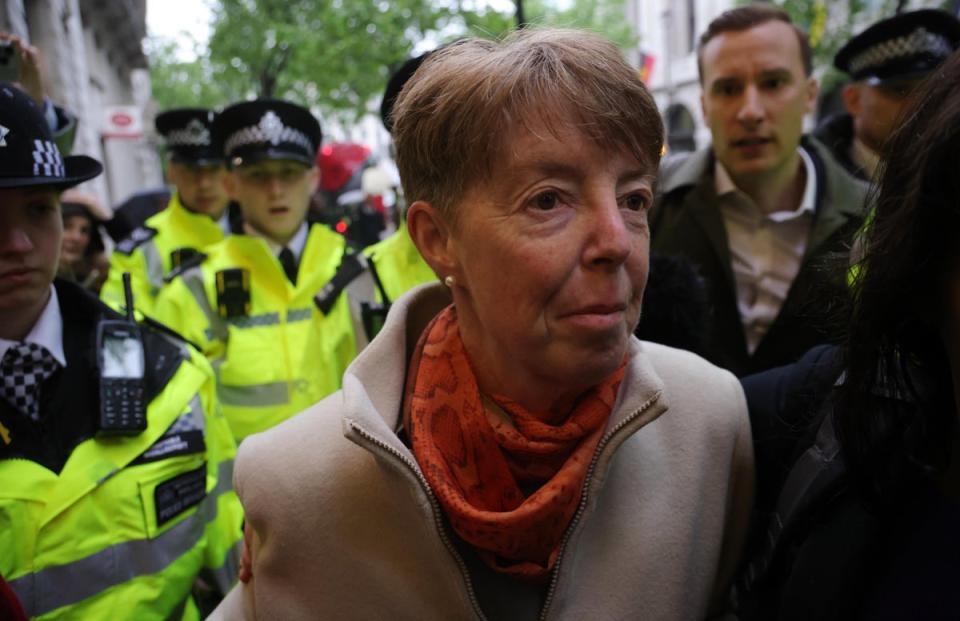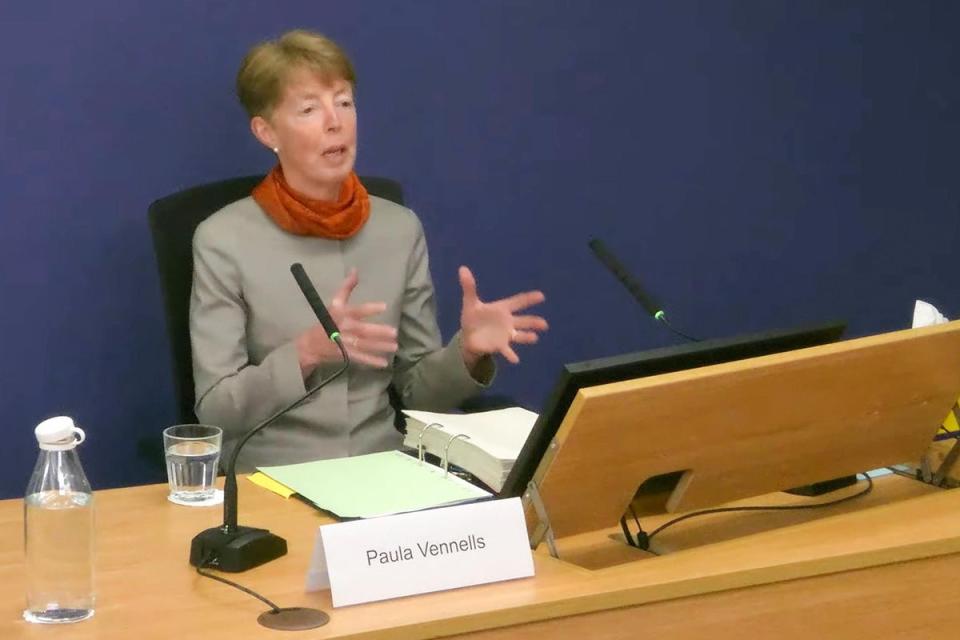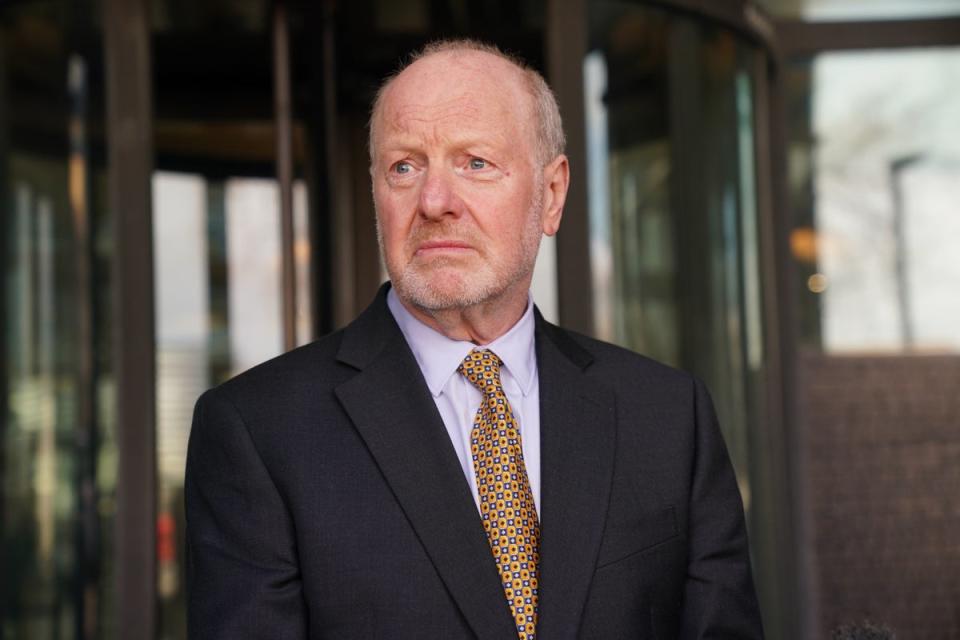Paula Vennells shown damning text from ex-Royal Mail chief over Post Office scandal: ‘I think you knew’
Paula Vennells has been confronted with a damning text from the former chief executive of the Royal Mail suggesting she knew about flaws in the Horizon IT system used by the Post Office.
“I think you knew,” the ex-Post Office boss was told by Canadian-born Moya Greene, who was in charge of the Royal Mail for eight years.
Ms Vennells replied, telling Ms Greene: “No Moya, that isn’t the case.”
But, in an exchange of messages shown to the official Post Office Horizon IT inquiry, Ms Greene told Ms Vennells she could no longer support her “after what I have learned”.

Ms Greene added: “I want to believe you. I asked you twice. I suggested you get an independent review reporting to you.
“I was afraid you were being lied to. You says the system had already been reviewed multiple times. How could you not have known?”
The inquiry’s lead counsel Jason Beer KC asked whether Ms Vennells understood Ms Greene’s message to be “an accusation you knew about bugs, errors and defects in Horizon”.
Ms Vennells said: “No, I understood this to be Moya… having been listening to all of the information in the inquiry trying to square her memory with what she was hearing.
“I think she was possibly suggesting there was some conspiracy, and as I said I did not believe that was the case.”
In 1999, Horizon, a defective Fujitsu IT system, began incorrectly reporting cash shortfalls at branches across the country. The accusations tore people’s lives apart, with many losing their jobs and homes.
Several people took their own lives due to the stress.
To this day, not a single Post Office or Fujitsu employee has been held to account over the scandal, much less faced criminal investigation.

Ms Vennells’ appearance before the inquiry is the first time she has spoken publicly in almost a decade, having last addressed the scandal before a committee of MPs in 2015.
The damning text exchange was shown to the inquiry as Ms Vennells apologised for "all that subpostmasters and their families... have suffered".
The 65-year-old ordained priest told the inquiry on Wednesday that she had been "too trusting".
She was given a self-incrimination warning by chairman Sir Wyn Williams, but told him: "Thank you, Sir Wyn... I plan to answer all questions."
Ms Vennells told the probe she had "no sense there was any conspiracy at all" and admitted that individuals, including herself, had "made mistakes".
Issuing a short statement at the beginning of the hearing, Ms Vennells said: "I would just like to say - and I’m grateful for the opportunity to do this - how sorry I am for all that subpostmasters and their families and others have suffered as a result of all of the matters that the inquiry is looking into.
"I followed and listened to all of the human impact statements and I was very affected by them."
As his first major question to Ms Vennells, Mr Beer said: "Do you think you are the unluckiest CEO in the United Kingdom?"
Ms Vennells replied: "As the inquiry has heard, there was information I wasn’t given and others didn’t receive as well.
"One of my reflections of all of this - I was too trusting.

"I did probe and I did ask questions, and I’m disappointed where information wasn’t shared, and it has been a very important time for me to plug some of those gaps."
Ms Vennells apologised specifically to former subpostmaster and lead campaigner Alan Bates.
Addressing attendees at Aldwych House in central London, she said she would like to repeat an apology she made to Mr Bates, and a number of other individuals, in one of her witness statements.
In the statement, Ms Vennells said: "I also offer my apologies to Alan Bates, Ian Henderson, Ron Warmington, Lord Arbuthnot and all those who worked with them to secure justice for the subpostmasters."
Questioned on whether the scandal had been a conspiracy, the ex-Post Office boss said: "No, I don’t believe that was the case.
"I have been disappointed, particularly more recently, listening to evidence of the inquiry where I think I remember people knew more than perhaps either they remembered at the time or I knew of at the time.
"I have no sense that there was any conspiracy at all.
"My deep sorrow in this is that I think that individuals, myself included, made mistakes, didn’t see things, didn’t hear things.
"I may be wrong but that wasn’t the impression that I had at the time.
"I have more questions now but a conspiracy feels too far-fetched."

 Yahoo News
Yahoo News 
